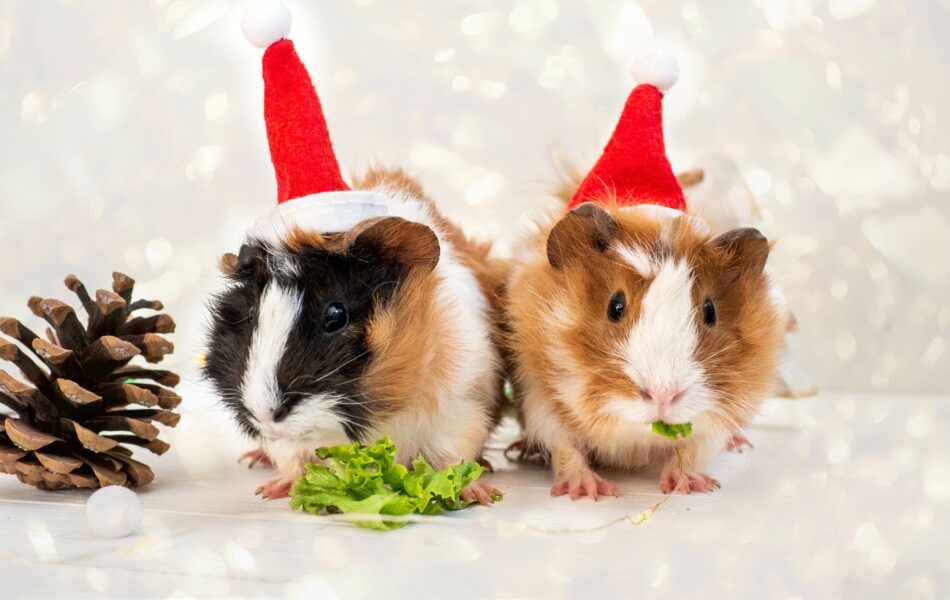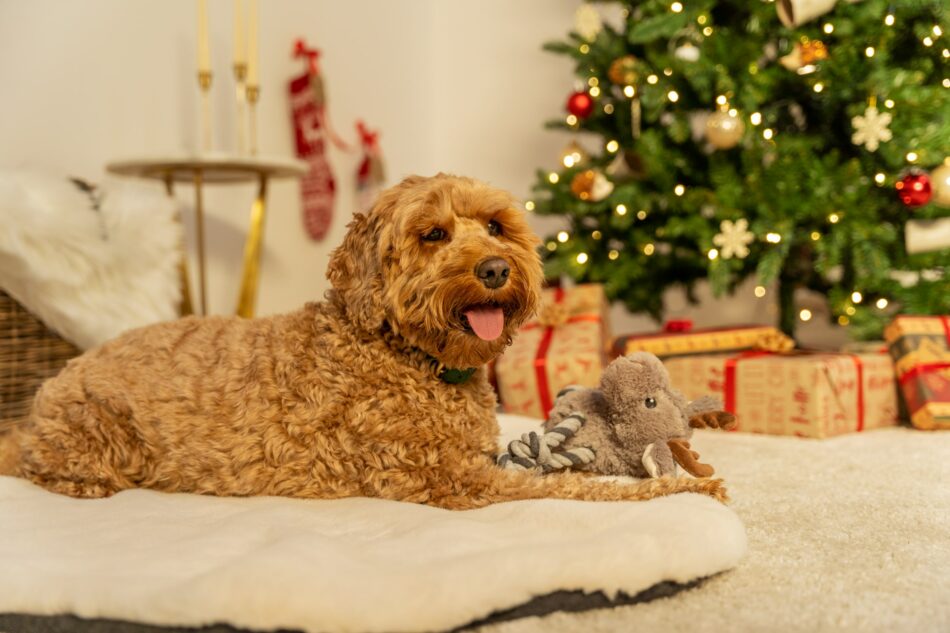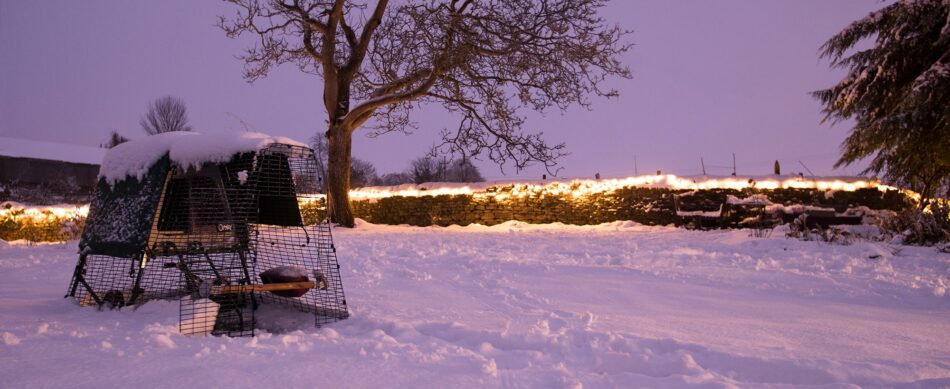Christmas with your pets
The festive season is a time to gather, celebrate, and share the love — including Christmas with your pets. Whether you’re the parent of a dog, cat, chicken, rabbit, guinea pig, hamster, or all of the above, you’ll want to ensure their comfort and safety this season. Here’s how to create a special Christmas for your furry or feathered family members, from festive treats to favourite traditions.
Including your pets in Christmas
Christmas brings lots of activities that your pets can enjoy along with you. From holiday feasting and gift-giving, to cozy nights by the fire or outdoor exploration, your pets can participate in favourite holiday traditions. Some modifications may be in order, but with some planning and preparation, you can create lasting holiday memories and traditions with your pets for years to come.
A Safe Christmas Dinner for Your Pets
Everyone loves Christmas dinner, and including your pets is a fun way to let them be part of the festivities. Depending on the pets you own, there are certain foods that are safe to give, and some that should be avoided. Here are pet-friendly options for a small, festive meal:
Dogs
- Safe: Cooked turkey or chicken (skinless and boneless), plain cooked vegetables (carrots, green beans, pumpkin), a small amount of plain mashed potatoes (no butter or cream).
- Avoid: Onions, garlic, bread, gravy, chocolate, raisins, macadamia nuts, and alcohol.
Cats
- Safe: Small portions of cooked turkey or chicken (skinless and boneless), plain salmon (boneless and unseasoned), a little cooked pumpkin.
- Avoid: Dairy products, onions, garlic, bones, chocolate, and alcohol.
Chickens
- Safe: Cooked or raw vegetables (broccoli, peas, pumpkin), cooked rice, and fruits (apples, pears, berries).
- Avoid: Avocado, citrus fruits, onion, seasoned or sugary foods, and alcohol.
Rabbits and Guinea Pigs
- Safe: Leafy greens and herbs (kale, parsley, spinach), small amounts of raw apples or carrots, bell peppers, strawberries.
- Avoid: Potatoes (sweet potatoes are safe), onions, garlic, and sugary treats.
Hamsters
- Safe: Small amounts of carrot, cucumber, apple, and plain cooked pasta or rice.
- Avoid: Citrus fruits, chocolate, and sticky or sugary foods.
Keep in mind portions are important, even for festive feasting. Too much unfamiliar food can upset the digestive tracts of your pets. Some pets with underlying health conditions like diabetes should also not be offered holiday food unless approved by their veterinarian. If you’re wondering whether or not a food is safe for your pet, here is a list of food and ingredients to keep all pets away from:
- Chocolate (contains theobromine, toxic to most pets)
- Onions, garlic, and leeks (can cause gastrointestinal upset and anemia)
- Artificial sweeteners, especially xylitol (toxic even in small amounts.
- Raw potatoes (not including sweet potatoes)
- Alcohol
- Sugary and salty snacks
- Bones (can splinter and cause injury)
If you think your pet may have ingested any of these, contact your veterinarian.
Festive, homemade treats
Small treats scattered throughout the season is another way to include your pets in holiday cheer. Here are some easy easy ideas that offer a delicious and nutritious festivity to your pets’ diet:
Dog-friendly Christmas biscuits
- Mix oat flour peanut butter (xylitol-free), and mashed banana.
- Roll into shapes and bake at 300°F until firm
Christmas cat treats
- Combine canned tuna (in water), egg, and oat flour.
- Shape into small balls and bake at 300°F until lightly golden.
Festive fruit and veggie chicken wreath
- Thread leafy greens, carrot slices, and apple chunks onto a circular wire for an edible decoration.
Small animal Christmas snack mix
- Combine dried herbs (parsley, mint, oregano, etc) with appropriately sized pieces of carrot, apple, and plain cereal to offer to rabbits, guinea pigs, and hamsters.
Top tips for a pet-friendly Christmas
Diet aside, there are other considerations for pets this time of the year. From guests and travelling, to outdoor activities, make sure you factor your pets into your plans. Stick to these tips to keep Christmas smooth and stress-free.

Manage the holiday hustle
Set up a quiet, cozy space for your dog or cat where they can retreat during loud gatherings. Place a dog bed or dog kennel in a secluded spot, or provide a hammock in a cat tree to give your pets a reprieve. Move hamster habitats out of heavily trafficked areas (especially during their daytime sleeping hours), and make sure chickens are enclosed in their chicken runs. Rabbit and guinea pig hutches should also be secured properly to prevent accidental escapes during flurries of activity.
Stick to your pets’ routines as much as possible to combat unnecessary stress, and make sure that holiday decorations and party supplies are out of your pets’ reach. Tinsel, lights, ornaments and discarded paper goods are common items for pets to ingest or chew on.
The same ideas apply when travelling with your pets. Keep to their routine as much as possible, “pet-proof” the areas they’ll have access to, and bring familiar items like beds or toys along if possible. When travelling with your dogs and cats, make sure they are wearing collars with appropriate identification tags, and are up to date on their vaccinations.
Don’t forget festive fun
Christmas photos with your pets are a perfect way to commemorate the season. If your pet is willing to don a costume or sweater for a photo, even better — just make sure to monitor pets closely the entire time they’re clothed to prevent chewing. Many local pet stores or shelters offer photos with Santa and your pets, or check your local town or city for upcoming holiday photo opportunities.
Take your dog on a walk to look at Christmas lights, or include your rabbits, guinea pigs, or chickens in an outdoor holiday scavenger hunt. Curl up with your cat on the couch while you read your favourite holiday book, or invite your hamster to sit in your lap during a late night Christmas movie viewing.
Outdoor winter weather safety
Winter brings its own unique set of challenges for pets that spend their time outdoors. Chicken-keeping during the winter looks different than in the summer, as does caring for your rabbits and guinea pigs during the winter. Even cats and dogs that venture outdoors can experience discomfort in extreme cold. Here’s how to keep your pets safe in freezing temperatures:
- Add outdoor pet run covers to protect from wind and snow
- Make sure water sources remain thawed
- Offer additional bedding and hay for rabbits and guinea pigs
- Supplement your chickens’ diet with extra protein like dried insects and alfalfa hay
- Limit exposure for cats and dogs when necessary
Keep an eye out for signs of hypothermia in outdoor pets when the weather dips below freezing — especially for sustained periods of time. Common signs of hypothermia in animals include:
- Lethargy
- Shivering
- Stiffness
- Shallow breathing
- Pale combs and wattles in chickens, mucous membranes in rabbits and guinea pigs, or gums and skin in cats and dogs
If you suspect hypothermia in your pet, move them to a warmer location immediately and contact your veterinarian.
Omlet and your pets
Including pets in your holiday celebrations is a joyful way to honor their presence and their being a part of your family. At Omlet, we believe in ultimate comfort and closeness all year round by inventing pet products that build and strengthen bonds between pets and their people. From insulated chicken coops and revolutionary rabbit and guinea pig hutches, to luxurious dog beds and ingenious indoor cat trees, our pet products are designed to support you and your pets in any season.
This entry was posted in Pets


